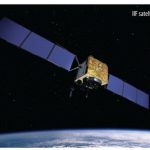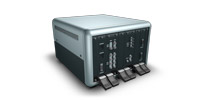
Vancouver, Canada–based Rx Networks Inc., announced the upcoming release of its GPStream PGPS v8 extended ephemeris solution yesterday (March 2, 2015) at the Mobile World Congress in Barcelona, Spain.
Vancouver, Canada–based Rx Networks Inc., announced the upcoming release of its GPStream PGPS v8 extended ephemeris solution yesterday (March 2, 2015) at the Mobile World Congress in Barcelona, Spain.
The patented GPStream PGPS extended ephemeris solution is designed to speed up the time-to-first-fix (TTFF) of any GNSS chipset while improving acquisition sensitivity in challenging environments. Compared to its previous version, Rx Networks says the new version effectively doubles the accuracy performance while supporting all four global GNSS constellations — GPS, GLONASS, BeiDou, and Galileo.
GPStream PGPS v8 will be available for integration testing in Q2 2015, with commercial release in Q4 2015. (According to Rx Networks, full commercial support for Galileo will remain subject to the readiness of the constellation.) The company says that early lab access to the latest GPStream PGPS v8 solution can help chipset manufacturers validate performance early in the development cycle and thus accelerate the time to market for their new multi-constellation chipsets.
A key component of any extended ephemeris assisted-GNSS solution is the accuracy of the orbit and clock predictions, which is often presented as an error in meters compared to the native “broadcast” ephemeris transmitted by GNSS satellites. The latest version of GPStream PGPS improves this accuracy by a factor of two, Rx Network says, compared with its prior release. For example, day 1, 7, and 14 accuracies for GPS are now, respectively, 2.8, 4.5, and 11.4 meters compared to 6.3, 12.5, and 30.2 meters previously, and equivalent GLONASS figures are 1.8, 6.5, and 13.7 meters compared to 7.3, 13.4, and 27.2 meters previously, according to the company. BeiDou and Galileo are expected to experience comparable performance improvements.





